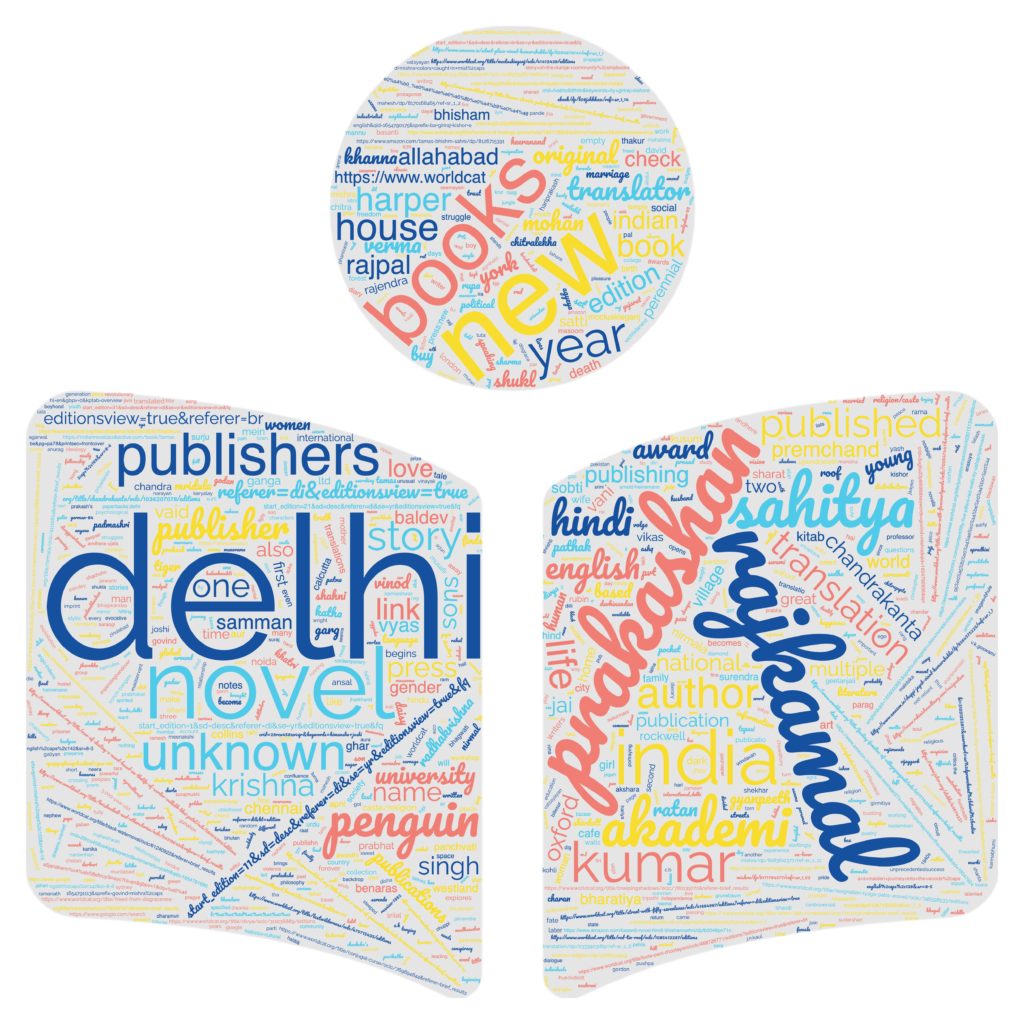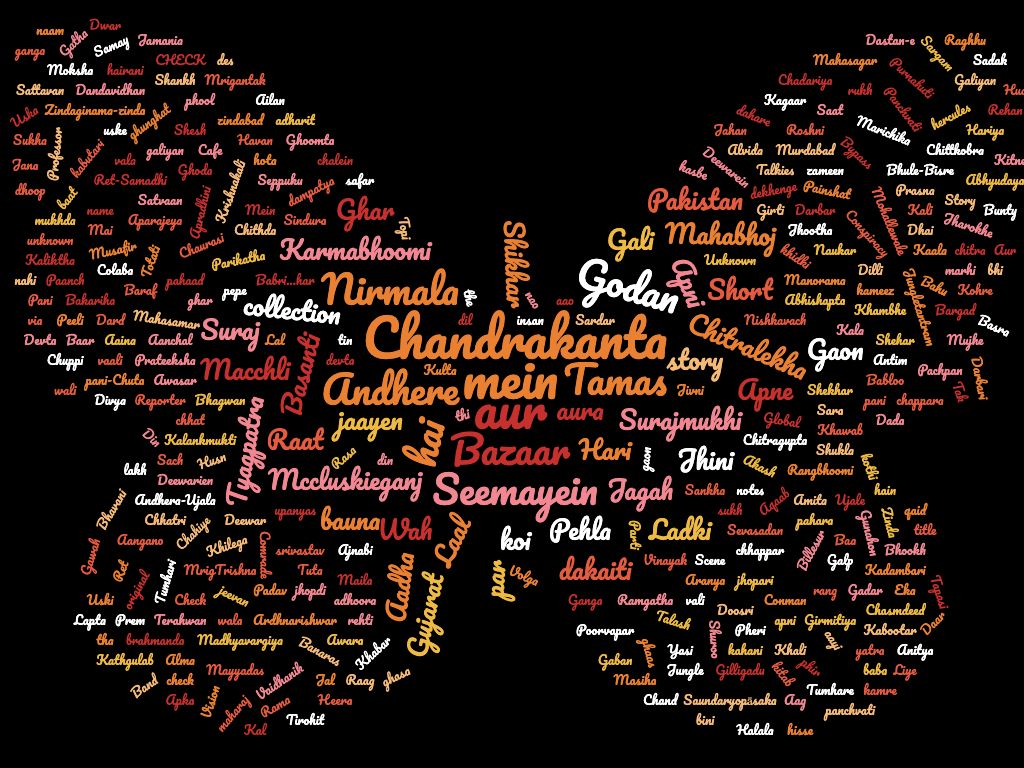
THIS IS A WORK IN PROGRESS. There are novels where the cover images, name of the original/translation publishers are not available and hence not updated on the website. We are actively seeking help from interested readers and book lovers to provide pictures of cover images of novels and point out corrections in the data. The arrangement of the database on a website is a cumbersome and time taking process and in next four months, it will have most of the data that can be shared publicly on the website.
India Translated is a public facing component of a broader initiative dedicated to the documentation of translated Indian literature. Initially focusing on Hindi novels translated into English, the project aims to eventually encompass novels/short stories/poetry from all Indian languages, making them accessible in English and potentially other languages. This initiative seeks to provide a more nuanced understanding of India through a comprehensive database of translated Indian novels, offering perspectives beyond those typically presented in English-language Indian literature. In the “world republic of letters,” Indian representation has been predominantly shaped by Indian English novels, which often overshadow the diverse literatures of multilingual India. This website functions as a digital archive for Indian novels in translation, serving as a resource for both researchers and general readers interested in exploring the rich literary landscape of India beyond the confines of Indian English literature. Researchers can reach out for the database (in Google sheet or Excel) of the Hindi novels in translation by writing to jey.sushil@gmail.com who runs this website.
Navigating the site

This website uses a curated database created over years beginning in 2020. The database in the form of google sheet/ excel and is available only on demand. Here one can navigate to gain an understanding and glimpse of the larger work interpreting the database. One can start from the ABOUT page which gives a brief introduction of the work.
The Homepage provides some novels of major writers and are clickable which takes them to page of the authors and their translated novels. Here one can explore basic metadata about the novels such as summary—gathered from publishers website, amazon and other bookselling platforms, reviews and at times written by the maker of this website. It also informs about when the original novel was published and in what year translation came including the name of the translator and publisher of the translation. If someone wants more information, the database can be requested which will provide the caste, religion, of author/translator and awards for the particular novel (original and translation).
The Timeline page is the visual representation of how much time it takes for a novel in Hindi to come into English translation. As this archive shows that not many Hindi writers are regularly translated into English, the timeline is limited to only to those writers whose at least four novels have been translated into English.
Since the archive is focused around the writers, the Authors page lists them alphabetically whose novels have been translated. It also links to the separate pages created for each novel in translation with summary, publishing dates and translator names.
In the last 10 years, the number of translations from any Indian language to English has increased which reflects in the Fresh Ink page underlining recent translation. This page doesn’t limit itself to novels or Hindi but tries to list all the books that are translated into English. Right now, it only documents works translated and published in 2024. The aim is to add translations from last five years in due course.
The Visualization is one of the most intriguing and interesting aspect of this archive and it was conceptualized with the notion of how data speaks visually. It in informed and influenced by “Data Portraits” of W. E.B.Du Bois but uses codings to make the visual. It shows some major trends in Indian translation by interpreting the metadata of the novels and analyzed with the lens of Caste, Gender, Religion and temporality.
This is still a work in progress and any feedback is welcome. Few more pages such as Resources for people interested in translation, academic articles, books, interviews with translators will be added to the website. FEEDBACK PLEASE
There are many novels where information about publishing year is not available, no cover image, out of stock or conflicting information. It is my endeavour to gather as much information as possible. I have taken help from social media and well informed readers, collectors, academics, cultural personalities to update the website. You may find some novels without cover page or little information. If there is any mistake/omission you find, please do not hesitate to write me at jey.sushil@gmail.com
Who am I ?

Jey Sushil, a bilingual writer and translator with a keen interest in South Asian and World literature, has a diverse professional background. He previously served as a multimedia journalist and Social Media Editor for the British Broadcasting in London and Delhi. Notably, he translated Nobel laureate V.S. Naipaul’s “A Turn in the South” (a reportage on the American South) into Hindi for Penguin and also translated Amitava Kumar’s acclaimed novel “Immigrant Montana.” Since joining Washington University in the International Writers Track, Jey has achieved significant milestones. He authored a memoir reflecting on his time at Jawaharlal Nehru University, known for its criticism of the Right-wing government and being targeted by the government in recent times. This is where he pursued his M.A. in Politics and MPhil in International Diplomacy. In addition to his journalistic and translation accomplishments, Jey wrote a novel based on his experience of raising a child as an Asian male in the USA for the mobile app Bynge. The novel, titled “House Husband ki Diary,” has resonated with audiences, accumulating over 100 thousand readings. Additionally, Jey serves as a guest editor for the Hindi magazine “Sadaneera.” Under his editorship, the magazine has published two remarkable issues on Anthropocene (2022) and Multilingualism (2023). At Washington University, Sushil has been recognized for his teaching contributions. In alignment with his interests in Postcolonial studies and Digital Humanities, Jey holds a teaching assistantship for courses such as Introduction to Postcolonial studies, Introduction to Digital Humanities, and the 20th Century: Critical Making. Sushil’s academic focus revolves around Postcolonial South Asia and digital archives.
He has received a Divided City Fellowship (2024), Graduate Student fellowship (2024), TESOL fellowship(2023), and William Gaas Travel grant(2022) for his research. His teaching portfolio includes teaching the independently designed course ‘Modern Indian Literature.’ His teaching portfolio includes teaching under the Missouri Prison Project, English to non native english speakers, and Hindi to heritage students. He has served as a Summer Mellon Fellow for the seminar “Ethnography as Theory,” and has been a part of the Digital Humanities Workshops over the years. He is actively involved in creating a digital archive of novels translated from Indian languages to English for his PhD dissertation. Adopting a multidisciplinary approach, he utilizes Digital Humanities methods to develop both an archive and a website for his thesis, complemented by a written dissertation.